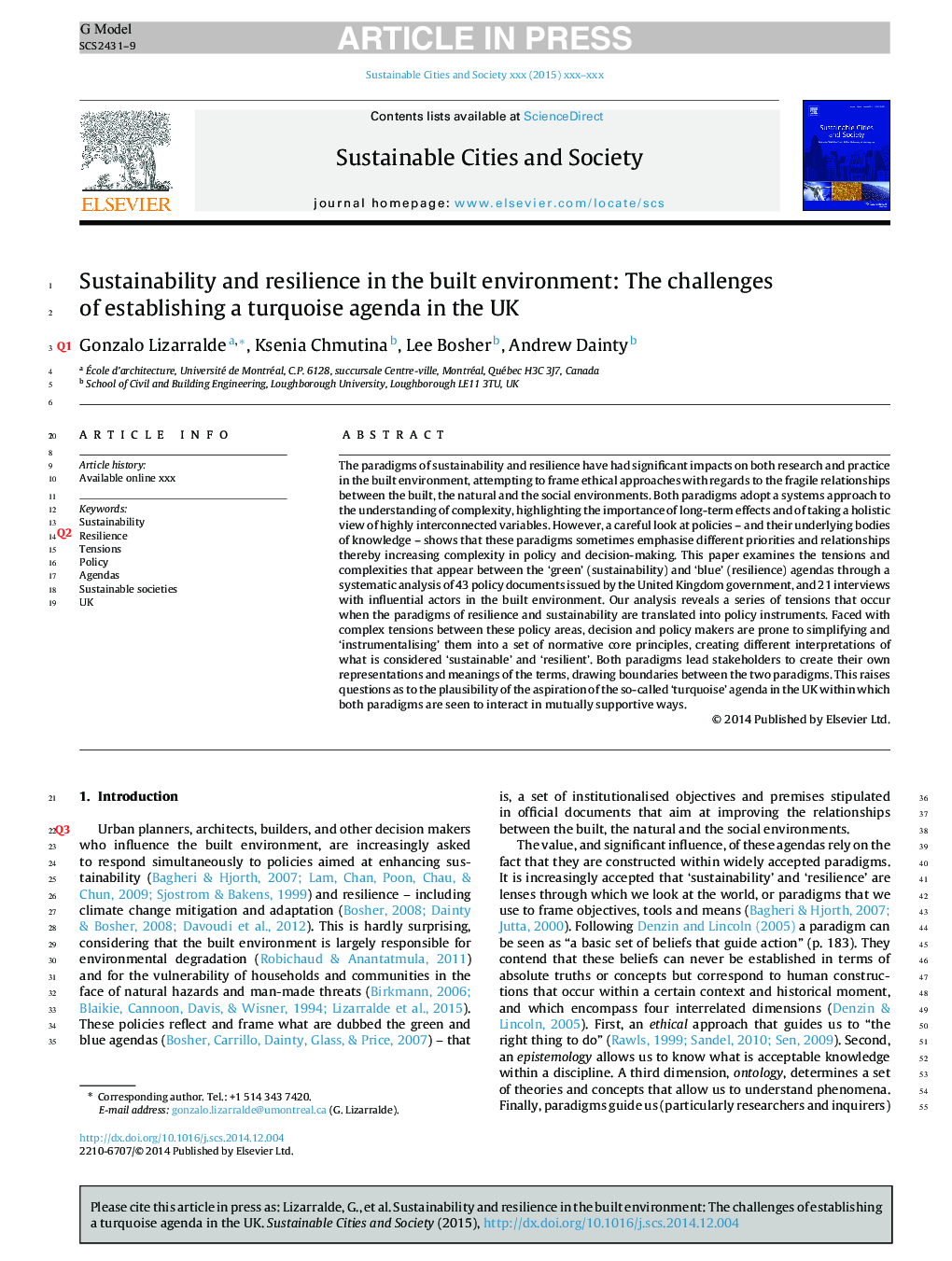| Article ID | Journal | Published Year | Pages | File Type |
|---|---|---|---|---|
| 6776470 | Sustainable Cities and Society | 2015 | 9 Pages |
Abstract
The paradigms of sustainability and resilience have had significant impacts on both research and practice in the built environment, attempting to frame ethical approaches with regards to the fragile relationships between the built, the natural and the social environments. Both paradigms adopt a systems approach to the understanding of complexity, highlighting the importance of long-term effects and of taking a holistic view of highly interconnected variables. However, a careful look at policies - and their underlying bodies of knowledge - shows that these paradigms sometimes emphasise different priorities and relationships thereby increasing complexity in policy and decision-making. This paper examines the tensions and complexities that appear between the 'green' (sustainability) and 'blue' (resilience) agendas through a systematic analysis of 43 policy documents issued by the United Kingdom government, and 21 interviews with influential actors in the built environment. Our analysis reveals a series of tensions that occur when the paradigms of resilience and sustainability are translated into policy instruments. Faced with complex tensions between these policy areas, decision and policy makers are prone to simplifying and 'instrumentalising' them into a set of normative core principles, creating different interpretations of what is considered 'sustainable' and 'resilient'. Both paradigms lead stakeholders to create their own representations and meanings of the terms, drawing boundaries between the two paradigms. This raises questions as to the plausibility of the aspiration of the so-called 'turquoise' agenda in the UK within which both paradigms are seen to interact in mutually supportive ways.
Keywords
Related Topics
Physical Sciences and Engineering
Energy
Renewable Energy, Sustainability and the Environment
Authors
Gonzalo Lizarralde, Ksenia Chmutina, Lee Bosher, Andrew Dainty,
